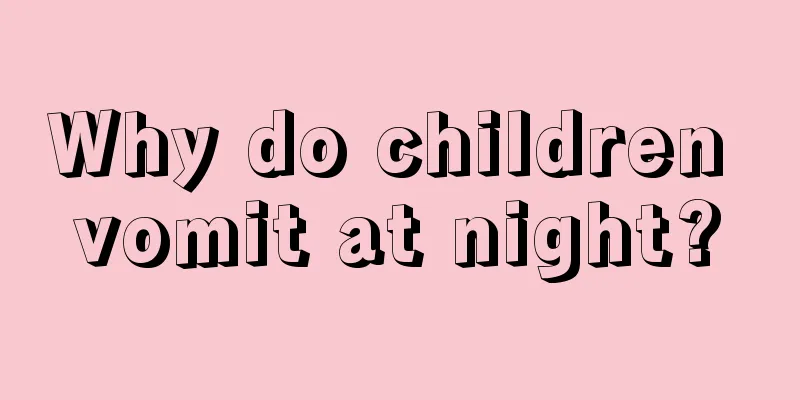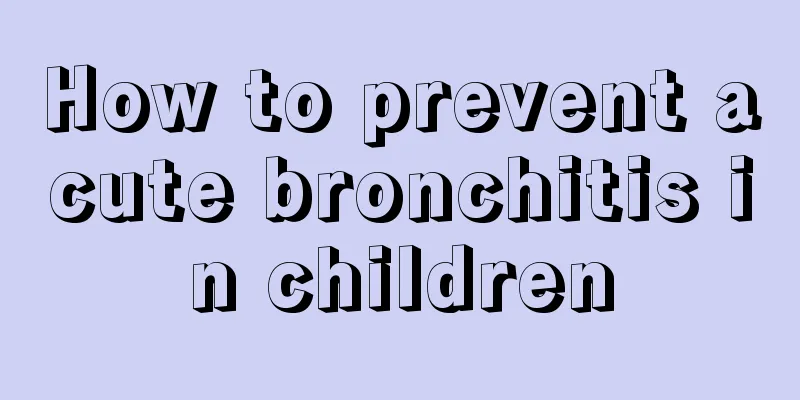What should I do if my little boy has mumps?

|
Because children nowadays generally lack exercise, and due to various factors, many children are prone to diseases, such as mumps, which is a common disease. Although this disease is not very serious and will not cause serious threats to life and health, it may still have serious consequences if it is not treated in time. So what should a little boy do with mumps? In daily life, what people call mumps is a respiratory infectious disease medically known as mumps. Mumps is a viral infection of the parotid glands in the neck and face. Men who are infected with mumps during puberty may become infertile for life if the infection spreads to the testicles. Of course, patients who suffer from mumps after the age of 14 are not necessarily infertile for life. For about half of the patients, the virus cannot invade the testicles and will not affect their fertility. In some patients, the virus infects only one testicle, and the spermatogenesis function of the healthy testicle will increase compensatorily. Even if both testicles are infected with the virus, some seminiferous tubules will resume spermatogenesis as the disease is controlled. Before puberty, germ cells are in a relatively static state, which is a non-susceptible period. During the embryonic stage, the germ cells rapidly divide and multiply, and the virus resides in the germ cells and can also multiply rapidly, causing permanent damage to the germ cells. Mumps is actually a systemic infection, and the virus often affects the central nervous system or other glands or organs to produce corresponding symptoms. Some complications are not only common but may also occur alone without parotid gland enlargement. 1. Reproductive system complications: Mumps virus easily invades mature reproductive glands. ⑴ Orchitis: The incidence rate accounts for 14% to 35% of male adult patients, and there are reports of 9-year-old children suffering from this disease. Generally, the incidence rate increases significantly after the age of 13 to 14 years. It often occurs when the parotid gland swelling begins to subside after about a week, with sudden onset of high fever, chills, testicular swelling and pain, accompanied by severe tenderness. The symptoms vary in severity and generally subside in about 10 days. There is also significant edema of the scrotal skin, and yellow fluid may accumulate in the caecum. ⑵Ovarian inflammation: accounts for about 5% to 7% of adult female patients. The symptoms are mild and do not affect conception, but may occasionally cause premature amenorrhea. ⑶ Pancreatitis: It occurs in about 5% of adult patients and is rare in children. It often occurs 3 or 4 days to 1 week after parotid gland swelling, with severe pain and tenderness in the upper and middle abdomen as the main symptoms. Accompanied by vomiting, fever, abdominal distension, diarrhea or constipation, and sometimes an enlarged pancreas can be felt. Symptoms of pancreatitis usually disappear within a week. ⑷ Nephritis: Mumps virus can be isolated in the urine of most early cases, so it is believed that the virus can directly damage the kidneys. In mild cases, there is a small amount of protein in the urine. In severe cases, the urine routine and clinical manifestations are similar to nephritis. Some severe cases may suffer from acute renal failure and die. But most have a good prognosis. ⑸ Myocarditis: About 4% to 5% of patients suffer from myocarditis. It is more common in the course of 5 to 10 days and may occur at the same time as parotid swelling or in the recovery period. Symptoms include pale complexion, increased or decreased heart rate, low and dull heart sounds, arrhythmia, temporary cardiac enlargement, and systolic murmur. ⑹Others: Mastitis (31% of female patients over 15 years old suffer from this disease), osteomyelitis, hepatitis, pneumonia, prostatitis, Bartholinitis, thyroiditis, thymitis, thrombocytopenia, urticaria, acute follicular conjunctivitis, etc. are rare. In fact, whether it is a little boy with mumps or an adult suffering from mumps, timely treatment is needed, because if any disease can receive professional treatment in the early stage, then the possibility of cure will be better. If you wait until the disease worsens before receiving treatment, it will seriously endanger your health. |
<<: How to take care of children's teeth?
>>: What should I do if my child has prickly heat on his forehead?
Recommend
What should a six-year-old child with constipation eat?
Many mothers are very troubled by constipation in...
What happens if I take a shower after getting a vaccination?
In order to reduce the troubles that babies encou...
Why do children have black teeth?
Children's teeth are relatively fragile. If y...
What disease is there on the child's lips
In fact, in life, it is not only the body that is...
Can the baby's full-month vaccination be postponed?
Vaccines are a very common thing in people’s dail...
How to treat lung heat cough in children?
Many children often cough. If they cough frequent...
What should I do if my child has a big bump on his forehead?
Bumps and bruises are inevitable in life. Every c...
White spots on the child's neck
Some children's skin is not particularly good...
What should children eat for constipation? Eat this to treat constipation
It is not recommended to use medication for child...
Why is the child always crying?
Many people think that coaxing a child is a commo...
Lymph nodes on the neck of a child
We all know that the neck is the most prone place...
What should I do if my child sprains his hand?
It is normal for children to be active, but if a ...
What are the drugs for treating precocious puberty?
Precocious puberty is a common problem that usual...
What are the symptoms of stomach cramps in children? Symptoms of stomach cramps in children
What is stomach cramps? Gastrospasm refers to cra...
How to treat coffee spots in children
Café au lait spots are a skin disease. The name a...









